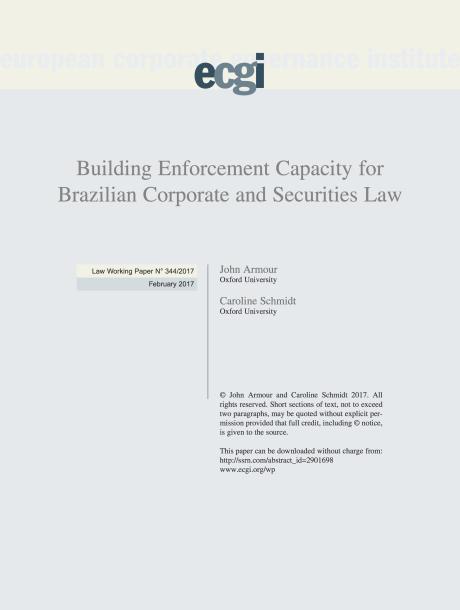
Building Enforcement Capacity for Brazilian Corporate and Securities Law
Abstract
Brazil is one of the world’s largest emerging markets, with many opportunities for development. Persuading financiers to commit funds to Brazilian firms requires effective corporate and securities laws to facilitate ‘arm’s length’ contracting. Enforcement of these laws is problematic. Brazilian judges are over-worked, with a long case backlog. They lack relevant business expertise, and are often expected to anticipate ‘social and economic consequences’ in their judgments. This provides little certainty. Nevertheless, authorities and market participants have developed an array of specialist enforcement institutions, which build upward from the authority of the inefficient courts, and overlap each other. Drawing on qualitative data from interviews with participants, we document the evolution and interaction of four such institutions in Brazilian corporate and securities law: (i) The growing role of arbitration; (ii) the restructuring of the São Paulo Court of Justice to create specialist panels of expert commercial judges; (iii) a dedicated administrative court operated by the Brazilian securities regulator (the ‘CVM’); and (iv) a recent initiative to create a Brazilian Takeover Panel (the ‘CAF’). Together they form a mutually reinforcing system of enforcement, the sum of which is far greater than its unpromising judicial foundations.

